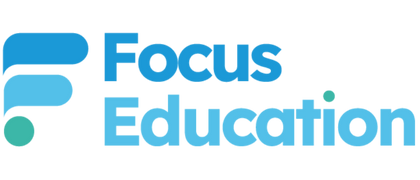The following example is taken from How to Assess a Knowledge Rich Curriculum Focusing on ‘sticky knowledge’ in science, history & geography & enhanced by art, DT, music, PE & computing
One of the main objectives that Ofsted looks for when judging a school’s curriculum intent is ensuring sequencing so knowledge is built over the years.
The objective expects that:
The school’s curriculum is planned and sequenced so that new knowledge and skills build on what has been taught before, and towards those defined end points.
(Ofsted framework – Curriculum intent)
The subject-specific assessment objectives have been built on the above principle. In other words, rather than having yearly key assessments for each subject, you can see how an aspect of the subject is built upon by using the main themes, such as locational knowledge in geography or chronology in history.
In this way, the integrity of the subject is guaranteed with statements that support pupils’ changes in long-term memory. As a result, the number of statements is reduced to achieve this.
It is also important to remember, as outlined by the Education Endowment Foundation, that assessing too close to the point of teaching can sometimes be misleading, especially when checking sticky knowledge, that is, learned knowledge that will stay forever. Therefore, we need to recognise that new learning is fragile and usually forgotten unless explicit steps are taken over time to revisit and refresh it.
Teachers should be wary of assuming that pupils have securely learnt material based on evidence drawn close to the point of teaching (Education Endowment Foundation).
What do we mean by a ‘knowledge-rich’ curriculum?
There is an expectation that the primary school curriculum has to be ‘knowledge-rich’.
What does this mean?
Amanda Spielman (2018) explains that, ‘The accumulated wealth of human knowledge, and what we choose to pass on to the next generation through teaching in our schools (the curriculum), must be at the heart of education’.
So, what must we consider when planning and assessing our curriculum? Here are some key features to think about:
- The curriculum should be a mastery of a body of subject-specific knowledge defined by each school;
- Skills are the by-product of the knowledge, not its purpose;
- Schools must decide on the ‘invaluable knowledge’ that they want their pupils to know as the content of the curriculum;
- Learning is defined as an alteration in long-term memory. If nothing has altered in long-term memory, nothing has been learned;
- Progress means knowing more and remembering more;
- Knowledge is generative or ‘sticky’;
- Vocabulary size is related to academic success, and schooling is crucial for increasing the breadth of pupils’ vocabulary.
Sticky knowledge – What is it?
Sticky knowledge is effectively knowledge that will stay with us forever. In other words, an alteration has happened to our long-term memory.
We could divide sticky knowledge into two main parts: interesting facts that will remain with us forever and knowledge that individuals need to learn as part of the National Curriculum.
Example – What are the key features of ‘knowledge-rich’ assessment for geography?
At both key stages, the sticky knowledge takes full account of the national curriculum’s main characteristics of:
- Locational knowledge
- Place knowledge
- Human and Physical geography
- Geographical skills and fieldwork
There are relatively few assessment statements, as these knowledge statements should be what pupils retain forever. In other words, this knowledge is within their long-term memory and will be retained.
There is a difference between the knowledge which will be retained close to the point of teaching and that which will be retained forever.
In effect, sticky knowledge refers to long-term memory and should not be assessed too close to the point of teaching.
When considering pupils’ improvement in subject-specific vocabulary, consider the specific vocabulary identified in Focus Education’s Geography Knowledge Organisers or History Knowledge Organisers.
View more about this publication here (you can also download a free chapter)

CONNECT WITH US
Twitter/X | focuseducation1
Bluesky | focuseducation
Facebook | focuseducation1
Instagram | focuseducation1
Linked In | Focus Education
Subscribe to our YouTube Channel

